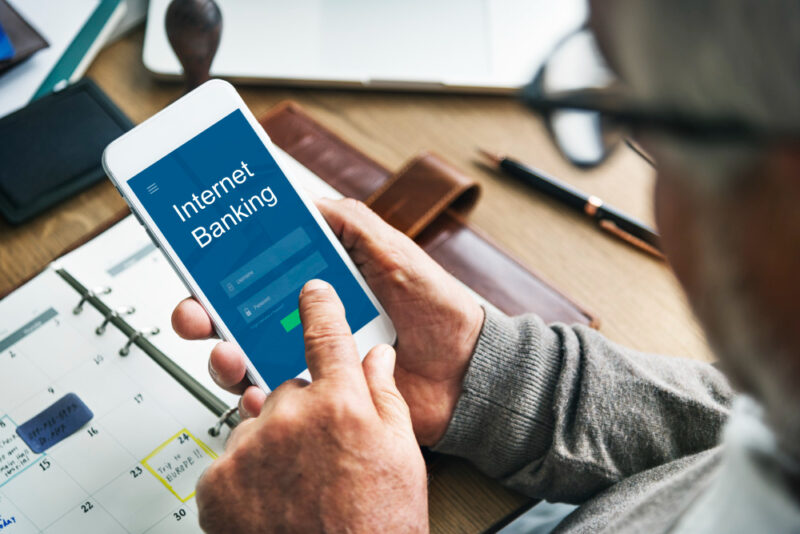Our lives have become increasingly dependent on technology, and as a result, more of our daily activities are now conducted through the Internet. We use it for shopping, banking, communication, entertainment, and many other activities. When we’re using online services to make financial transactions such as money transfers or payments for goods or services; however, security is paramount in order to protect ourselves from fraud and malpractice. In this article, we look at some important tips regarding how to safely transfer money online while keeping your wallet secure.
Choose a secure platform to do your money transactions
In today’s digital age, the convenience of online money transactions cannot be denied. However, with convenience comes the risk of security breaches and frauds that can put your financial stability at risk. It is therefore crucial to choose a secure platform when conducting money transactions online. With the plethora of options available, it can be overwhelming to decide on the best choice.
When making your selection, look for a website or platform that implements SSL encryption, two-factor authentication, and fraud detection measures. Take your time to read reviews and do some research to ensure that your chosen platform has a strong reputation for data security. Remember, a little caution can go a long way in keeping your hard-earned money safe.
Have strong passwords and two-factor authentication
In today’s digital age, strong passwords and two-factor authentication are crucial for keeping your personal information and online accounts secure. With cyber threats becoming more advanced, it’s important to take the necessary steps to protect yourself. A strong password includes a mix of upper and lowercase letters, numbers, and symbols. It may seem inconvenient to create complex passwords, but it’s worth it in the long run to prevent unauthorized access.
Two-factor authentication adds an extra layer of security by requiring a verification code in addition to your password. Make sure to enable two-factor authentication wherever possible, and be sure to use unique passwords for each of your accounts. Taking these simple steps can help keep your sensitive information safe from prying eyes.
Verify recipient information before sending money
Sending money to someone can be a breeze nowadays with various apps and online platforms. However, it is crucial to ensure that the recipient’s information is correct before hitting that send button. Imagine mistakenly sending funds to the wrong person; it can be a nightmare trying to retrieve the money back. If you want to send money to someone in Morocco or any neighboring country, it is essential to take a bit of extra time to verify the recipient’s information to avoid such scenarios. A wrong account or routing number, for example, can result in the wrong person receiving your money. Always double-check the details and be confident that the information is accurate before you send your hard-earned cash.
Look for the “https” in the URL bar
Whenever you’re browsing the internet, it’s important to keep an eye out for the little things that can indicate whether or not a website is secure. One of the key indicators is the presence of “https” in the URL bar. This simple acronym might not mean much to the average internet user, but it actually signals that the site has taken significant steps to protect your data and personal information. With cybercrime on the rise, it’s more important than ever to be vigilant about online security. By staying aware of the sites you visit and always double-checking for that reassuring “https”, you can help keep your personal info safe from harm.
Check the privacy policy of any website or mobile app
In today’s digital age, sending and receiving money has become a seamless experience thanks to the plethora of online money transfer options available. However, it’s important to take a moment to pause and protect your personal information before clicking that “transfer” button. Before using any website or mobile app to transfer money, always take the time to read their privacy policy. A quick scan of this document can ensure that your personal data is protected and not be shared or sold to third parties. So, take a moment to check the privacy policy before you hit the “send” button and enjoy a more secure money transfer experience.
Keep your devices and software up to date
In today’s digital age, keeping your devices and software up to date is more important than ever. Regularly updating your computer, phone, or tablet’s operating system and security software can protect you from cyber threats such as malware and viruses, and ensure that your device is running at its best. If you’re someone who tends to put off updates, know that it could be putting your personal information and technology at risk. By taking just a few minutes to regularly update your devices, you can ensure that you’re not only keeping your information safe but also enjoying the latest features and improvements that technology has to offer.
Avoid using public Wi-Fi when making online transfers
In today’s digital age, it’s easier than ever to transfer money online. However, it’s important to be aware of the risks that come with using public Wi-Fi when making these transactions. Public Wi-Fi hotspots are notoriously vulnerable to security breaches, making them an easy target for hackers who may be lurking on the network. By using public Wi-Fi to make online transfers, you’re essentially broadcasting your financial information to anyone who cares to intercept it.
This can lead to identity theft, fraudulent charges, and all sorts of other nightmares. To stay safe, it’s best to avoid using public Wi-Fi for any type of financial transaction. Instead, use a secure, private network, or wait until you’re on a trusted connection before making any online transfers.
Be aware of phishing scams/attempts
In an age where technology is constantly evolving and becoming more integrated into our lives, it’s important to be aware of the potential dangers that come with it. One of those dangers is phishing scams or attempts, where scammers try to deceive individuals into believing that they are legitimate companies sending emails. These emails may ask for personal information, login credentials, or even money. It’s crucial to remain vigilant and cautious, especially when it comes to unexpected or suspicious emails.
Always double-check the sender’s email address, look for spelling errors or grammatical mistakes, and avoid clicking on any links or attachments if you’re unsure of their legitimacy. Being aware and informed is the best way to protect yourself from falling prey to a phishing scam.
It is essential to stay vigilant when making online money transfers. Take the necessary steps to ensure a secure transaction and protect your financial information from malicious actors. Set up two-factor authentication for extra safety, look for the “https” in URLs when sending or receiving money, and review any relevant privacy policies. Additionally, ensure that all of your devices are updated with the latest software and security features, as well as never use public Wi-Fi while completing an online transfer.
Should you ever receive an unexpected email of either unknown origin or particularly urgent messaging, double-check its validity before responding or providing personal data—remaining alert at all times is key to staying one step ahead of those who engage in phishing attempts and other types of cybercriminal activity.










